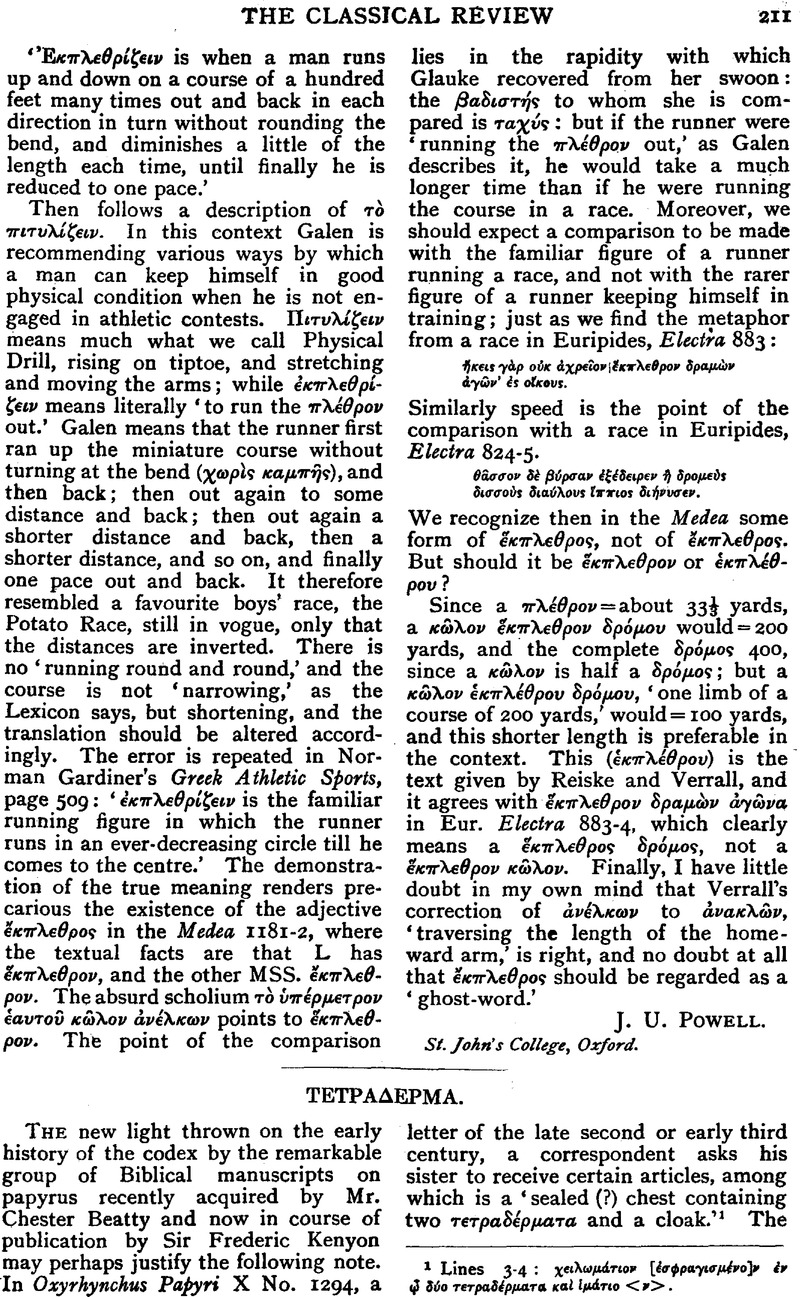Article contents
Abstract

- Type
- Review Article
- Information
- Copyright
- Copyright © The Classical Association 1933
References
page 211 note 1 Lines 3–4: ![]() .
.
page 212 note 1 Passions des Saints Écaterine et Pierre d'Alexandrie. Paris, 1897Google Scholar. Cf. Analecta Bollandiana XL, p. 254. The Acta of Peter are preserved in a rather bewildering number of Greek, Latin, and Coptic versions of which it is sufficient to say that the one chosen by the Abbé Viteau has the best claim to originality. Du Cange, in the extract quoted below, used the Greek text printed in Combefis, Illustrium Christi Martyrum Lecti Triumphi, Paris, 1660.Google Scholar
page 212 note 2 The Didot Stephanus gives as a second authority for the word τετρδερμον ‘Nicet. Paphlag. Laud. S. Eustath. p. 212. Boiss.’ This, however, is merely a blundered repetition of Du Cange's reference ‘Martyrium S. Petri Alex. pag. 212’; and how Boiss(onade) contrived to make two references out of one is explained, though hardly condoned, by the fact that Combefis' Lecti Triumphi, whence Du Cange derived his text of the Martyrium S. Petri, also contains Nicetas' eulogy on Eustathius. This was kindly verified by Mr. Stephen Wright of the Bodleian.
page 212 note 3 Baur, , Rostovtzeff, , and Bellinger, , The Excavations at Dura-Europos. Report on the Season 1933–1931. No. 300, pp. 153–156.Google Scholar
page 213 note 1 It will be noted that in the Acta of Peter the form of the word is τετρδερμον, while in the Oxyrhynchus letter we find τετρδερμα, pl. τετραδρματα. τετρδερμον looks like a back-formation from τετρδερμα treated as a neuter pl., and though I do not know if this is possible philologically, I think I can point to a similar phenomenon in the case of the word ὑπδημα. In P. Oxy. 936, 25 and in Roos, P. Groninganae 11, 9 in ὑπδημα in the singular seems to be used collectively for a pair, or a consignment, of shoes (in the former instance the editors translate ‘some (?) shoes ’); and in Zereteli, P. Ross.- Georg. II 41, 11. 15, 32 we find a new singular ὑπδημον, pl. ὑπδημα, which appears far more likely to be a vulgar variant of ὑπδημα, pl. ὑποδματα, than a misspelling of an (unattested) form ὑπδυμον=ὑποδτης, as suggested by the editor.
- 1
- Cited by




